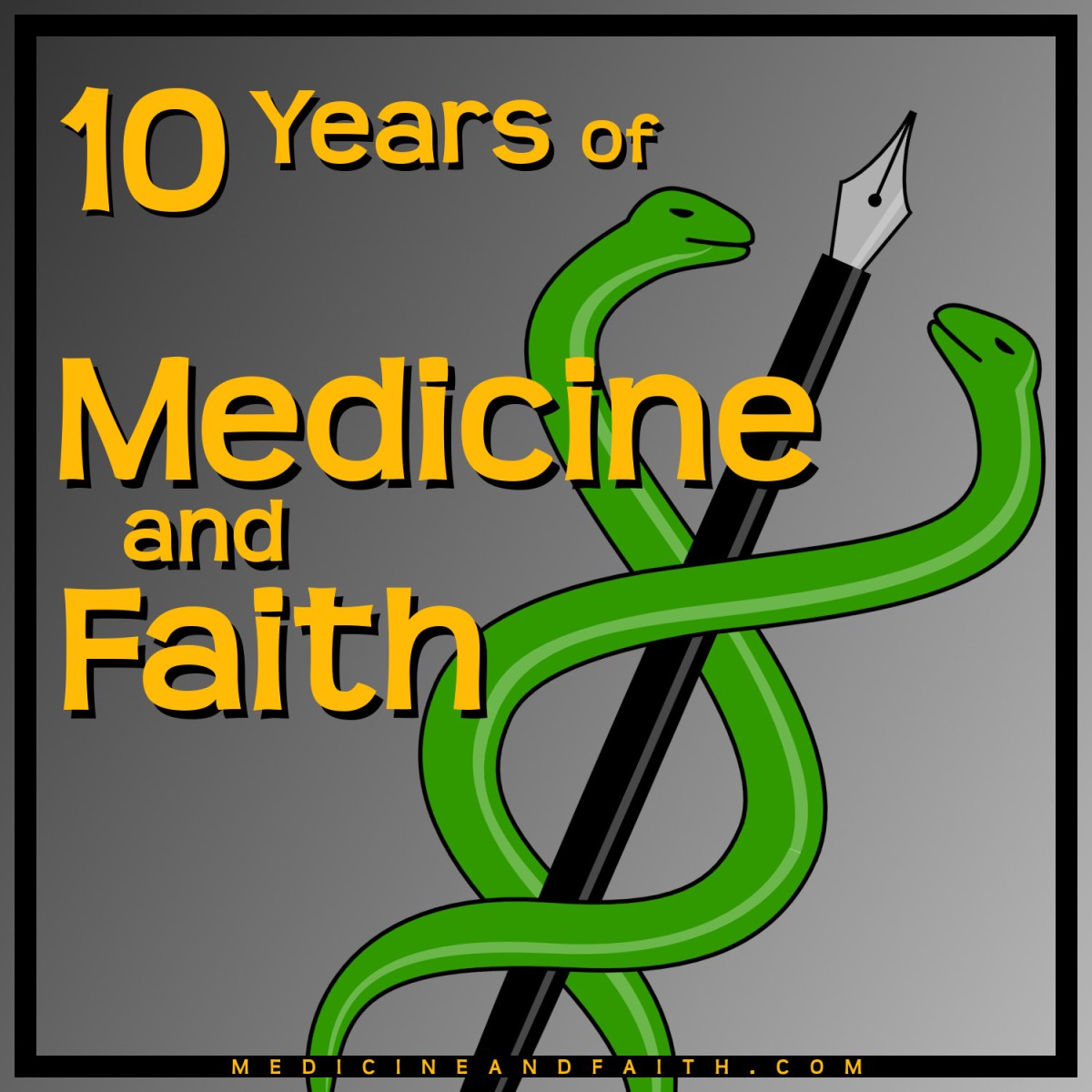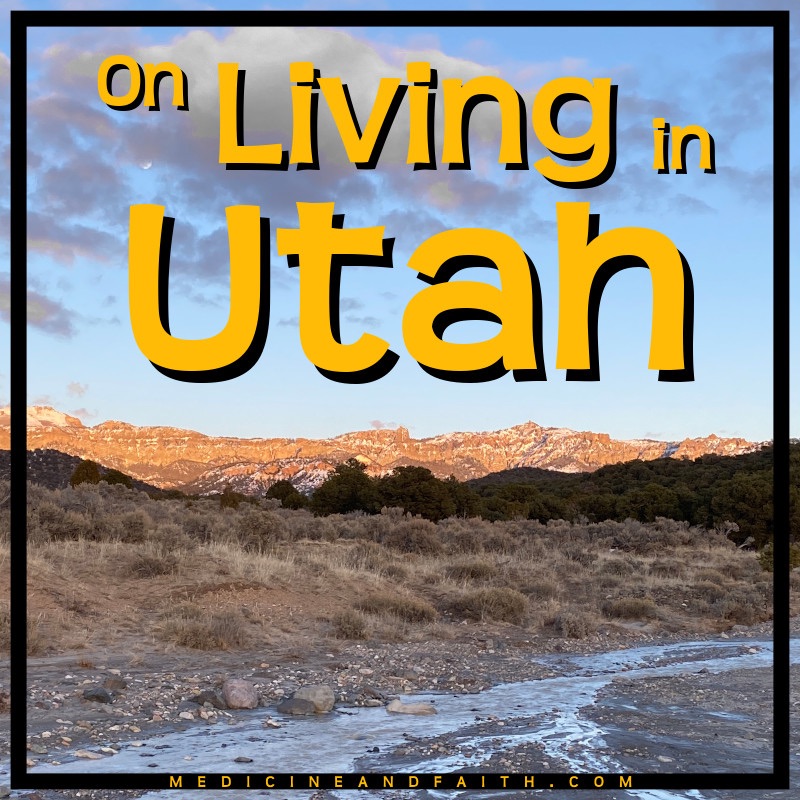My arm hurts.
I got the second SARS-CoV2-mRNA shot yesterday afternoon. My deltoid muscle was already feeling pretty sore by evening.
I tossed and turned through the night, and every time I rolled onto that muscle it would wake me up. By about 2:00 am this morning, 12 hours after I got the shot, I could no longer sleep. After lying in bed awake for an hour I decided to just get up and start my day.
It was a good thing I had today off from work, because I didn’t feel like doing much. All of my muscles are achy, but the deltoid is really sore. I have a new understanding of how my patients with autoimmune inflammatory muscle diseases must feel.
I took two naps today, and now that it’s evening I feel like going to bed. We’ll see if I can sleep.
~~~
I wrote the previous paragraphs a few weeks ago. My reaction to the vaccine lasted about two days, and by the end of the second day I was feeling well enough for an easy 7 mile run.
This is by far the most intense immune reaction I have ever had to a vaccine. Nothing else has come close. And I am not the only one; several of my colleagues and coworkers have had similar experiences, and others have called in sick because of it.
So does this change the way I feel about the vaccine? Do I need to revise what I said in my previous post?
Maybe just a little bit. My personal cost of receiving the vaccine is higher than what I estimated before. Now instead of just 2 days of deltoid soreness, the grand total is more like 4 days of deltoid soreness, plus about 48 hours of general malaise, myalgias, and night sweats.
How does that compare to the illness I am hoping to prevent? The majority of symptomatic COVID-19 cases are flu-like illnesses that last several days, which can be managed at home with acetaminophen and chicken soup. Compared to these mild cases I would say that I am already ahead of the game in terms of risks vs. benefits. More severe cases can land people in the hospital, or the ICU, or even the grave, and my reaction was nowhere near as bad as any of that.
And what if we factor in the effects of my immunization on other people? The vaccine is our best way forward out of this pandemic, so the needle jab in my arm gets all of us one step closer to having normal social interactions again in our schools, churches, businesses, nursing homes, etc. As a Christian I should always be thinking about the Lord’s commandment to honor my parents, to love my neighbor, to love others as Christ loves me, and to love even my enemies. Becoming immune to COVID-19 makes me less likely to pass the illness on to any of these people. For me, enduring some discomfort for 48 hours is a worthwhile sacrifice for the greater good that I hope to see in the world.
Risk Management
Every decision we make in medicine is a balance between benefits and risks, between adverse and therapeutic actions. On the whole we judge whether something is medically worthwhile to do by whether it produces some net benefit to the patient. Letting the patients judge this for themselves is the gold standard in my clinic.
For instance, a cancer chemotherapy which prolongs the patient’s life by a year could be a significant benefit to someone with a very aggressive cancer, as long as that extra year is not made completely miserable by toxicity of the drug. Whether or not an extra year of life spent with intractable nausea and vomiting is worthwhile is a case-by-case value judgement that oncologists and cancer patients should make together.
A general rule that I was taught in residency is that you shouldn’t be the first person or the last person to prescribe a new drug. This is sound advice for doctors under normal circumstances, because sometimes you don’t know all of the rare adverse effects of a drug until you treat a few million people with it. But during a pandemic with hundreds of thousands of lives already lost, we need to expedite things. The urgency of getting our population vaccinated outweighs the risk of being an early adopter. The pharmaceutical companies and the FDA have done due diligence in the approval process; trusting the process helps us move forward.
Medicine is full of quandries like this, ranging in seriousness from trivial to mortal:
- “A bandage would make this cut heal faster, but I hate pulling my arm hair out when I rip it off.”
- “My doctor says that I will have to go on medications if I don’t get my blood sugar and cholesterol under control, but I don’t want to give up my caramel bacon sundaes (or my soft drinks).”
- “This migraine treatment cuts my headache frequency in half, but it makes me sleepy.”
- “The surgery completely cured his heart disease, but unfortunately he suffered a brainstem stroke while on the heart and lung machine and will never regain consciousness again.”
Our very lives are woven with the thread of risk management. Examples can be found everywhere you look:
- The benefits of employment, education, and even recreation generally outweigh the risks of car travel — but not always.
- Carrying the pickle jar and the mustard bottle in the same hand will save me another trip to the fridge, but I might drop a glass jar on the floor while I’m doing it.
- Financial investment vehicles which provide a higher potential rate of return also have a higher risk of loss of capital.
- You might get more done on a project by staying up late and working while you’re “in the zone,” but sleep deprivation will make you less productive tomorrow.
Calculating with Infinity
We also engage in risk management when it comes to matters of faith, but the calculations can be a bit tricky. It is hard to trust in things which are not seen, especially when those unseen things would change the whole outcome.
Funny things happen when you add infinity to an equation, as all students of algebra will know. “Endless is my name,” says the Lord, whose sacrifice was “infinite and eternal“. Those who are “received into heaven … dwell with God in a state of never-ending happiness” (Mosiah 2:41, emphasis added). Some of us try to ignore these infinities, but when you try to replace them with zeros by living “without God in the world” it can cause another whole set of problems.
Eternity is a really long time. Actually, it is so long that time itself entirely loses its meaning.
We don’t preach hellfire and damnation from pulpits in The Church of Jesus Christ of Latter-day Saints very often. Positive infinity is a more pleasant subject than negative infinity.
The teachings of Jesus Christ focus more on optimism and having the right motivations for our actions, and less on scaring people into compliance by threatening punishments. Here are some of the spiritual risk management calculations that Jesus described:
“Lay not up for yourselves treasures upon earth, where moth and rust doth corrupt, and where thieves break through and steal: But lay up for yourselves treasures in heaven, where neither moth nor rust doth corrupt, and where thieves do not break through nor steal: For where your treasure is, there will your heart be also” (Matthew 6:19-21).
“For what is a man profited, if he shall gain the whole world, and lose his own soul? or what shall a man give in exchange for his soul” (Matthew 16:26)?
“And fear not them which kill the body, but are not able to kill the soul: but rather fear him which is able to destroy both soul and body in hell” (Matthew 10:28).
Jesus is teaching us perspective in these passages. Don’t fixate on the things of this world, he tells us. That will distract you from the things that are really important. I will show you the way, he says, because “I am the way.” The calculus of Jesus allows us to actually reach infinity, here and now, by communing with Him who is Infinite. With his help we can then calculate our instantaneous velocity through mortality. Which way are we headed? How fast are we moving there? What course corrections do we need to make?
Conclusion
Life is not without risk, but we all knew that when we signed up for it. There is risk involved in getting the COVID-19 vaccine, and risk in not getting it. Every decision we make, or don’t make, could wind up helping us or harming us. Sometimes we are aware of the risks, and can calculate them, and sometimes not. But if we move forward with our eyes fixed on the One who is The Way, then we will make it out alright.
Or we could go it alone. But why risk it?
Alan B. Sanderson, MD is a member of The Church of Jesus Christ of Latter-day Saints and is a practicing neurologist. Cover image adapted from Wikimedia Commons, CC-BY 2.0.





Jesus does not ask us to put poison into our bodies, which are to be His temple.
LikeLike
That is true, and I agree with you. But the COVID-19 vaccine is not a poison, and is not intended to do harm to your body. It is intended to help your body defend itself against an attack, and when I wrote this post in early 2021 it was pretty effective at doing that. The vaccine doesn’t help as much with the newer COVID variants, but at least they are also less virulent.
LikeLike